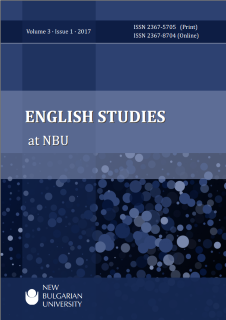Every Turn of the Wheel : Circular Time and Cordelia’s Revolt :
Every Turn of the Wheel : Circular Time and Cordelia’s Revolt :
From William Shakespeare to the British Enlightenment
Author(s): Tadd Graham FernéeSubject(s): Politics, Studies of Literature, History of ideas, Political history
Published by: Нов български университет
Keywords: William Shakespeare; King Lear; Tudor history; Stuart history; English Civil War; David Hume; Enlightenment; Political pluralism; Secularism; Theocracy
Summary/Abstract: This article argues that William Shakespeare’s King Lear anticipates core political dynamics of the English Civil War (1641-49), and philosophical tenets of the British Enlightenment in John Locke and David Hume. It analyzes three principle and competing paradigms of public authority in King Lear: theodicy, nature, and the autonomy of thought. The play is historically contextualized within the 16th century. King Lear, moreover, portends revolutionary new thought patterns: the centerless universe of modern astronomy, and human embeddedness in fluid nature without fixed identity. Three variants on the concept of “nothing” – existential, social, and philosophical - interweave the cosmic and political threads, based on a circular temporality. Shakespeare’s character, Cordelia, affirms the everyday over the cosmic, and the sociological over the metaphysical. King Lear depicts a profound moral trans-valuation in early modern history, whose shifting temporal horizons remain central also to contemporary politics.
Journal: English Studies at NBU
- Issue Year: 3/2017
- Issue No: 1
- Page Range: 5-25
- Page Count: 21
- Language: English

